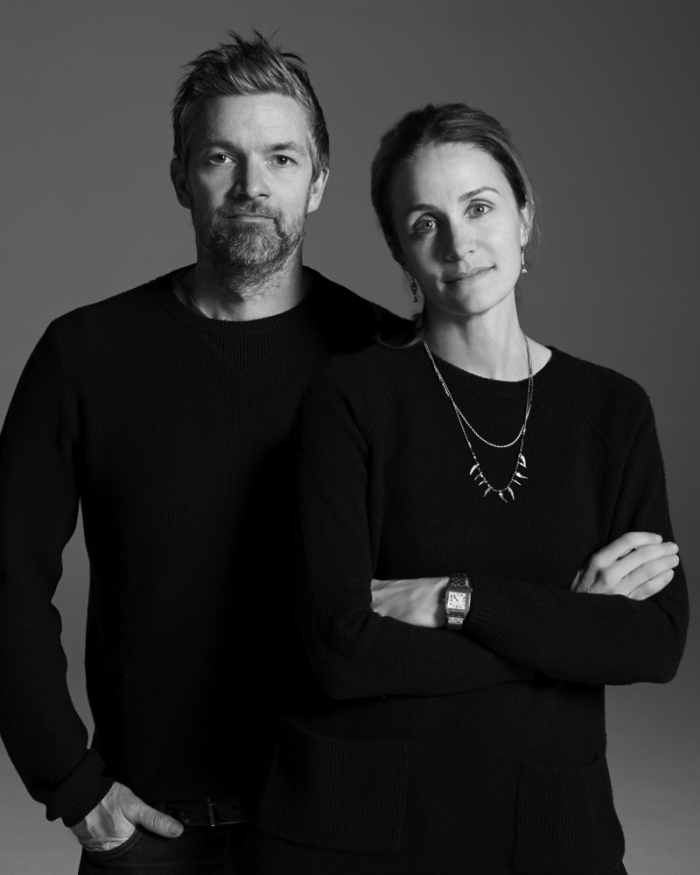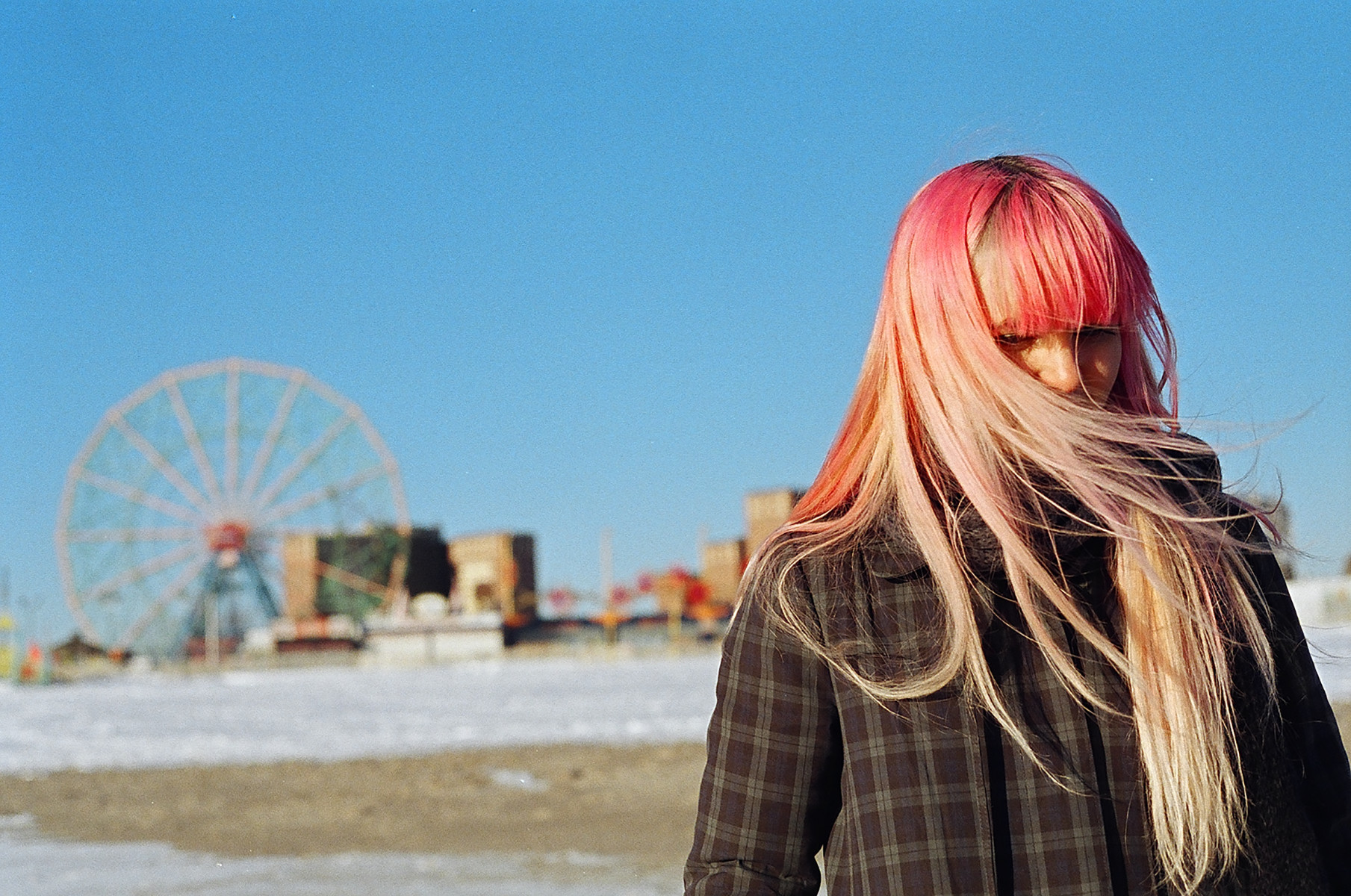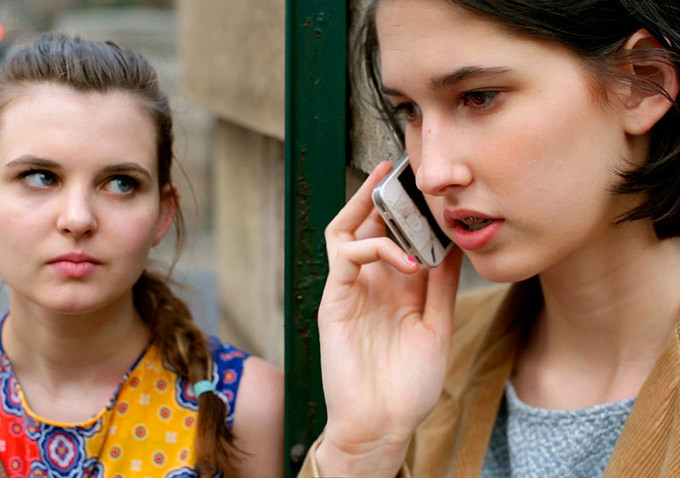5 Questions With...Jenny Gage and Thomas Betterton, of ALL THIS PANIC
/Next up is the creative team behind ALL THIS PANIC, a feature documentary that’s as impactful in its visual depiction as it is in its storytelling. Director Jenny Gage, and Cinematographer, Thomas Betterton have crafted a portrait of the inner lives of teenage girls that you won’t soon forget. We chatted with Jenny and Thomas about the making of their feature documentary debut.
NFF: This film is a marvel. At first glance, the photography is in narrative style, but the direction is traditional verité. The look of the film is one of its standout elements. As your DP is also your husband, talk about your collaboration in envisioning and executing the look of the film.
Jenny: The look was very important and carried a large part of the meaning. We wanted a documentary that felt real and present, but had a rare quality and beauty. You can use beauty to teach about a time in a girl’s life when things are beautiful and nuanced. We think (and they might agree) they’re the stars of their own films in real life, and in the film, they show us their magic.
Thomas: The big thing was as Jenny says: respect the interior life of the girls and the expansiveness of the potential of life you feel at that age. We wanted the audience to feel it. I used traditional narrative shooting style in lensing and camera style from shot to shot. Also the consistency of sticking with one style over the years anchored the feeling of reality. Much to the editor’s frustration, I refused to shoot b-roll, so he had to treat each scene as a narrative construction.
NFF: How did you cast your seven subjects who you follow in the film? Did you know where you wanted to find them from the beginning and how did you determine the final grouping we’d see in the final cut?
J: We initially started following the two sisters, Ginger and Dusty, and we were committed to filming their circle of friends. We never went out to “cast” anyone. Both Ginger and Dusty weren’t that comfortable at the beginning, especially since Tom had a short lens and was sitting just feet away from them, but we spent the most time with them, and they became more comfortable as the years went by.
T: Over the length of time we followed them, they grew up in front of the camera, and you see that in ways both physical and emotional, but you also see it in their on-screen comfort.
NFF: Once you began following the selected girls, did you finish with the same group you’d started with or were there losses/additions? And talk about how you developed such an intimate rapport with the girls.
J: Olivia, who’s in the final cut, was, for about 9 months, almost a loss from the film. Once we’d nearly finished, she’d gone off to college, freaked out and said “I don’t think I can be in a film” and she asked us to take her out almost entirely. We kept listening and told her that we understood how hard it might be to share that candor with family and friends. We said we were going to make the film we intended and told her she was an important part of it. Once we were done, we showed her the final edit and she was like “I’m in. Actually, do you want to shoot more?”! But every girl, throughout the process, had an “oh shit...people will actually see this movie” moment, hers was just the biggest.
T: Overall there were 10 or 12 people we filmed. Most of the people that didn’t make it were busy with school at the time.
J: Ginger had two besties in High School (Lena and Nico) and Nico went to Europe for college, but it was too hard to follow her there. We hope to add her in clips, but we had to make hard decisions about editing as we didn’t want to make a 2 hour film.
NFF: What did you set out to convey or uncover with this documentay? Do you feel like you surpassed your own expectations?
J: I really wanted to hear what girls were thinking about and doing at that time in their lives. For me, I remember it happened so quickly and I had no time to reflect. I could see the circle of life. I felt like I learned how important and complex girls’ friendships are. They build who you are as a woman. The girls said they didn’t want the film to be about gossip (like the Jersey Shore) and it never turned into that.
T: It was an act of faith to take a subject matter that isn’t traditionally regarded as important and sticking with it to the end. We think it was well worth it.
NFF: In your own words, why should people come to see All This Panic at Nantucket Film Festival?
J: Because these girls have something to say, it’s awesome and these girls are awesome, and because you think you know what teenage girls are thinking, but you don’t.
T: Jenny says the film is “[her] love letter to teenage girls” and I’m like 'I can't say that; it’d be creepy!' I'll just say It’s not going to be what you think it is; it’s going to be something new.
ALL THIS PANIC plays Nantucket Film Festival on June 24th and 26th.







